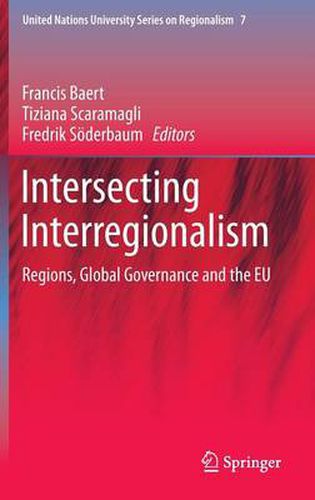Readings Newsletter
Become a Readings Member to make your shopping experience even easier.
Sign in or sign up for free!
You’re not far away from qualifying for FREE standard shipping within Australia
You’ve qualified for FREE standard shipping within Australia
The cart is loading…






This title is printed to order. This book may have been self-published. If so, we cannot guarantee the quality of the content. In the main most books will have gone through the editing process however some may not. We therefore suggest that you be aware of this before ordering this book. If in doubt check either the author or publisher’s details as we are unable to accept any returns unless they are faulty. Please contact us if you have any questions.
This book has two mutually reinforcing aims/parts. The first aim is to contribute to a more productive debate between different theoretical standpoints. There is surprisingly little theoretical and conceptual debate in this burgeoning field, which is one major reason for the failure to fully grasp the diversity of today’s interregionalism. Too often theorists speak past each other, without really engaging with alternative theoretical perspectives or competing research results. Indeed, this book constitutes the first systematic attempt to bring together leading theories and theorists of interregionalism. Leading scholars from around the world develop their own distinctive theoretical perspectives on interregionalism, with a particular emphasis on the dynamic relationship between regionalism and interregionalism. These highly acclaimed theorists have all been associated over the years with a variety of disciplines, institutions, schools and debates and so bring a rich set of insights and connections to this pioneering project. The second part of the book ‘unpacks’ and problematises the region, the driving actors and institutions that are engaged in interregional relations. There is a strong tendency in the field to treat regions as coherent units actors in an interregional relationship, and such simplified notions about ‘regions’ and ‘regional organisations’ necessarily result in superficial and misleading understandings of interregionalism. This part of the book connects the theoretical discussion in the first part with a manageable empirical object.
$9.00 standard shipping within Australia
FREE standard shipping within Australia for orders over $100.00
Express & International shipping calculated at checkout
This title is printed to order. This book may have been self-published. If so, we cannot guarantee the quality of the content. In the main most books will have gone through the editing process however some may not. We therefore suggest that you be aware of this before ordering this book. If in doubt check either the author or publisher’s details as we are unable to accept any returns unless they are faulty. Please contact us if you have any questions.
This book has two mutually reinforcing aims/parts. The first aim is to contribute to a more productive debate between different theoretical standpoints. There is surprisingly little theoretical and conceptual debate in this burgeoning field, which is one major reason for the failure to fully grasp the diversity of today’s interregionalism. Too often theorists speak past each other, without really engaging with alternative theoretical perspectives or competing research results. Indeed, this book constitutes the first systematic attempt to bring together leading theories and theorists of interregionalism. Leading scholars from around the world develop their own distinctive theoretical perspectives on interregionalism, with a particular emphasis on the dynamic relationship between regionalism and interregionalism. These highly acclaimed theorists have all been associated over the years with a variety of disciplines, institutions, schools and debates and so bring a rich set of insights and connections to this pioneering project. The second part of the book ‘unpacks’ and problematises the region, the driving actors and institutions that are engaged in interregional relations. There is a strong tendency in the field to treat regions as coherent units actors in an interregional relationship, and such simplified notions about ‘regions’ and ‘regional organisations’ necessarily result in superficial and misleading understandings of interregionalism. This part of the book connects the theoretical discussion in the first part with a manageable empirical object.